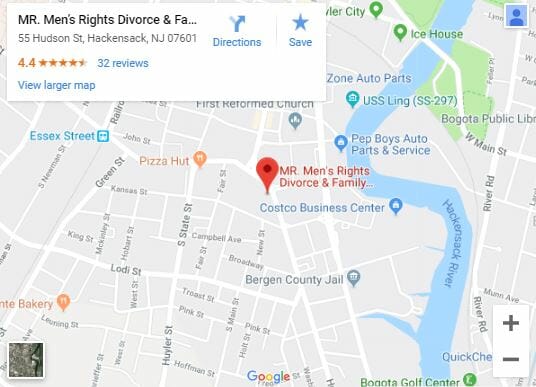Attorney Carrie Schultz explains how divorce mediation works.
Depending upon your family and financial circumstances, these issues could be relatively straightforward, or they could be highly complex. In order to make sure that you fully address each issue (including establishing an enforceable parenting plan and dividing your retirement accounts), it is important that you discuss your uncontested divorce with an experienced attorney. You do not want unresolved issues lingering after your divorce.
Discuss Your Divorce Options with an Experienced Family Law Attorney
If you would like more information about contested and uncontested divorces and deciding which option is best for you, contact Men’s & Fathers’ Rights Divorce Lawyers by Schultz & Associates, LLC to arrange a case evaluation. You can send us a message online, or call 201-880-9770 to schedule an appointment today. As an experienced New Jersey Divorce Lawyer I am often asked about mediation. Divorce mediation works in various ways.
- You and your spouse are allowed to agree on a certain mediator
- You and your spouse will also have the ability to choose your own mediator as well
Are you going through a divorce and want to know more about mediation? If so, contact or call our team at (201) 880-9770.
Contested vs. Uncontested Divorce in New Jersey
Are you wondering whether a contested or an uncontested divorce is right for your personal situation? Let our dedicated New Jersey divorce lawyers help you decide.
When preparing for a divorce, there are a lot of difficult questions you will need to answer. One of these questions is whether to pursue a contested or uncontested divorce. Through our decades of experience, it has become clear that many people are – quite understandably – unclear on the differences between these two methods of divorce. Here are some of the key details you need to know:
What is the difference between a contested and an uncontested divorce?
A divorce case usually starts contested until, or if, the parties reach an agreement (at which point it becomes uncontested). If a case starts uncontested that means that a couple has primarily agreed to all terms negotiated (perhaps without an attorney’s assistance). That, however, is not the end of the analysis. Perhaps the parties thought they reached an agreement but left issues out or did not fully agree on an item until they spoke with an attorney. In those instances, the matter remains contested until all issues are covered and resolved.
Can spouses still reach a settlement agreement if they start out with a contested divorce?
Yes, absolutely. In fact, this is quite common. While two divorcing spouses may initially be at odds, once they begin the divorce process, learn more about one another’s interests, and begin to feel the financial burdens of litigation, it is not unusual for them to shift their focus to finding common ground.
Isn’t it up to my spouse whether he or she will agree to an uncontested divorce?
Technically, yes. It takes two to reach an agreement, and if your spouse is unwilling to negotiate in good faith you may have no choice but to pursue a contested divorce. However, when you and your spouse meet with your respective attorneys for the first time, you should both receive information on the benefits of pursuing an uncontested divorce. In many situations, the divorce process begins with the spouses and their attorneys working toward setting the stage for an uncontested divorce.
Is an uncontested divorce the same as a no-fault divorce?
No. In the divorce context, fault is a separate concept. While filing for a fault-based divorce in New Jersey is still an option (many states have done away with the fault-based divorce concept), in most cases spouses file for a no-fault divorce. But, no-fault does not mean uncontested. Even if you file for divorce on no-fault grounds, if necessary you can still pursue a contested divorce and fight to protect your interests in court.
What are the issues we need to agree upon in order to finalize an uncontested divorce?
There are four primary issues that need to be resolved in a typical divorce, contested or uncontested. These are:
These educational videos were brought to you by Carrie Schultz, an experienced New Jersey Divorce Lawyer.

